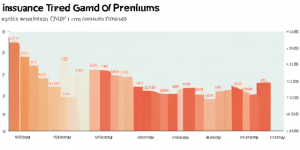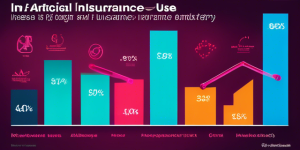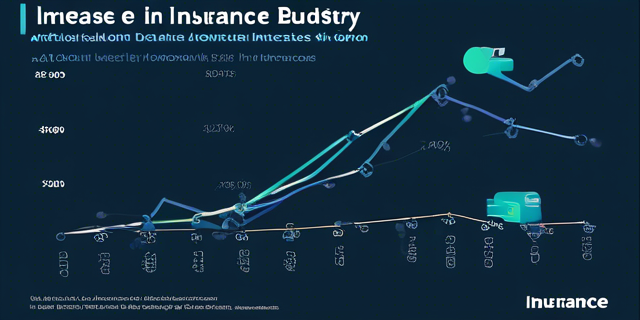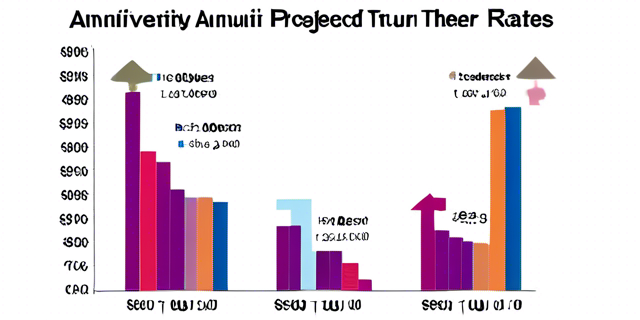Artificial Intelligence Trends 2024: Revolutionizing the Insurance Industry

In the ever-evolving landscape of the insurance industry, one technological advancement has been making waves – artificial intelligence (AI). This powerful tool is transforming the way insurance companies operate, from streamlining processes to enhancing customer experiences. In this comprehensive article, we’ll explore the latest AI trends that are reshaping the insurance landscape, and how these innovations can benefit both insurers and policyholders alike.
The Rise of AI in Insurance
Artificial intelligence has long been touted as the future of various industries, and the insurance sector is no exception. As insurers grapple with an ever-increasing volume of data, complex customer demands, and the need for faster decision-making, AI has emerged as a game-changer. By harnessing the power of machine learning, natural language processing, and predictive analytics, insurance companies are now able to streamline their operations, enhance their decision-making capabilities, and provide more personalized services to their clients.
Enhancing the Customer Experience
One of the most significant AI-driven trends in the insurance industry is the focus on enhancing the customer experience. AI-powered chatbots and virtual assistants are becoming increasingly common, allowing policyholders to get their questions answered and issues resolved with minimal human intervention. These intelligent systems can provide instant responses, offer personalized recommendations, and even guide customers through the complex process of filing claims.
AI-Powered Underwriting
Traditionally, the underwriting process in insurance has been a labor-intensive and time-consuming task, often relying on manual reviews of historical data and risk assessments. However, AI is revolutionizing this aspect of the industry. By leveraging machine learning algorithms, insurers can now automate the underwriting process, analyze vast amounts of data, and make more accurate risk assessments in a fraction of the time. This not only streamlines the underwriting process but also allows for more personalized pricing and coverage options for policyholders.
Fraud Detection and Prevention
Insurance fraud is a significant challenge for the industry, costing billions of dollars in losses each year. AI-powered fraud detection systems are proving to be highly effective in identifying and preventing fraudulent claims. These systems can analyze patterns in data, detect anomalies, and flag suspicious activities in real-time, enabling insurers to take swift action and minimize financial losses.
Predictive Analytics and Risk Management
One of the core functions of the insurance industry is risk management, and AI is transforming this aspect as well. By harnessing the power of predictive analytics, insurers can now forecast future trends, anticipate risks, and proactively manage their exposure. This can lead to more accurate pricing, improved risk-based decision-making, and the development of innovative insurance products that cater to evolving customer needs.
Optimizing Internal Processes

In addition to enhancing the customer experience, AI is also helping insurance companies optimize their internal processes, leading to increased efficiency and cost savings.
Automated Claims Processing
The claims processing workflow is often a time-consuming and labor-intensive task for insurance companies. AI-powered automation can streamline this process, from initial claim submission to final payout. By using natural language processing and computer vision techniques, AI systems can extract relevant information from claim documents, validate the claims, and initiate the payment process, all without the need for manual intervention.
Intelligent Automation
Insurance companies are also leveraging AI-powered intelligent automation to streamline various back-office operations, such as policy administration, document management, and compliance reporting. These automated systems can perform repetitive tasks with greater accuracy and speed, freeing up employees to focus on more strategic and value-added activities.
Intelligent Document Processing
Insurance companies often deal with a vast amount of paperwork, from policy applications to claims forms. AI-powered intelligent document processing (IDP) solutions can automate the extraction, classification, and processing of these documents, reducing the time and resources required for manual data entry and improving overall efficiency.
The Future of AI in Insurance
As the insurance industry continues to evolve, the role of AI is expected to grow even more prominent. Here are some emerging trends that point to the future of AI in the insurance sector:
Hyper-Personalization
AI-powered systems are enabling insurers to deliver highly personalized products and services to their customers. By analyzing vast amounts of data, including customer behavior, lifestyle, and risk profiles, insurers can tailor insurance coverage, pricing, and even communication to the unique needs of each policyholder.
Embedded Insurance
The concept of embedded insurance involves integrating insurance products seamlessly into the customer’s digital experience, such as through e-commerce platforms or IoT (Internet of Things) devices. AI plays a crucial role in this trend, powering the real-time analysis of customer data and the dynamic offering of relevant insurance products at the point of need.
Autonomous Insurance
The rise of autonomous vehicles and other connected devices is paving the way for the development of autonomous insurance solutions. AI-powered systems can analyze sensor data from these devices, continuously monitor risks, and automatically adjust coverage and pricing to meet the evolving needs of policyholders.
Ecosystem Collaboration

As the insurance industry becomes more interconnected, AI is enabling greater collaboration within the ecosystem. Insurers can now share data and insights with partners, such as healthcare providers, automotive manufacturers, and financial institutions, to deliver more comprehensive and tailored insurance solutions to customers.
Conclusion
Artificial intelligence is undoubtedly transforming the insurance industry, revolutionizing everything from customer experience to internal operations. As insurers continue to embrace these technological advancements, we can expect to see even more innovative solutions and seamless integration of AI-powered capabilities across the industry. By staying ahead of the curve and leveraging the power of AI, insurance companies can position themselves for long-term success, while delivering better value and more personalized services to their policyholders.
FAQs
- How is AI improving the customer experience in the insurance industry? AI-powered chatbots, virtual assistants, and personalized recommendation systems are enhancing the customer experience by providing instant responses, offering tailored solutions, and guiding policyholders through complex processes like claims filing.
- What are the benefits of AI-powered underwriting in insurance? AI-driven underwriting can automate the process, analyze vast amounts of data, and make more accurate risk assessments, leading to streamlined operations, personalized pricing, and customized coverage options for policyholders.
- How is AI helping insurance companies detect and prevent fraud? AI-powered fraud detection systems can analyze data patterns, identify anomalies, and flag suspicious activities in real-time, enabling insurers to take swift action and minimize financial losses due to fraud.
- What role does AI play in the optimization of internal processes for insurance companies? AI is helping insurance companies streamline various internal processes, such as automated claims processing, intelligent automation of back-office tasks, and intelligent document processing, leading to increased efficiency and cost savings.
- What are some of the emerging trends in the future of AI in the insurance industry? The future of AI in insurance includes trends like hyper-personalization, embedded insurance, autonomous insurance, and ecosystem collaboration, all aimed at delivering more tailored, seamless, and integrated insurance solutions to customers.









